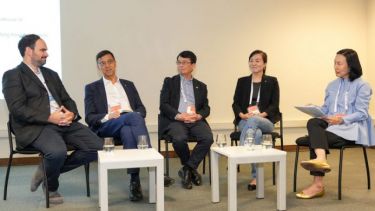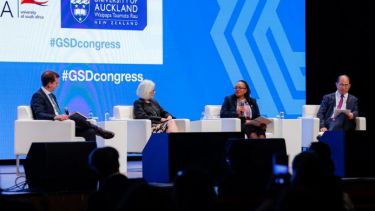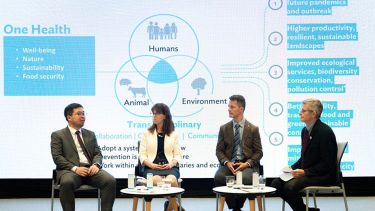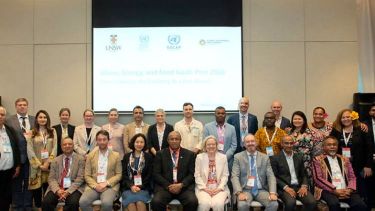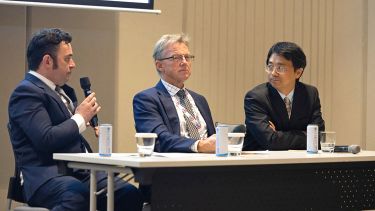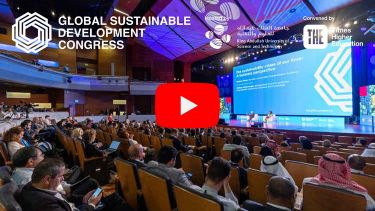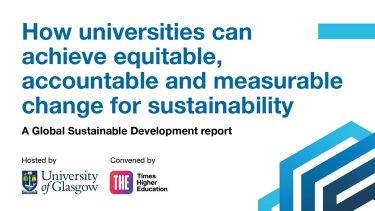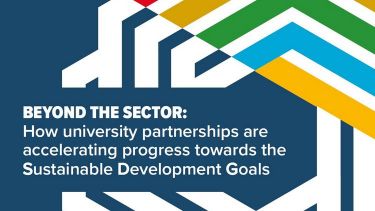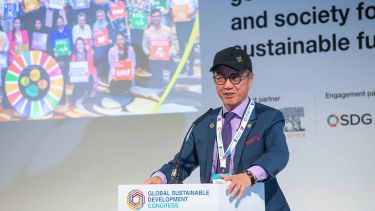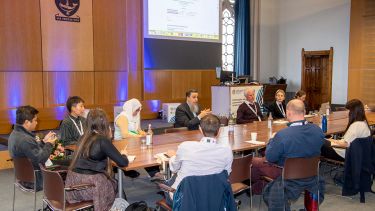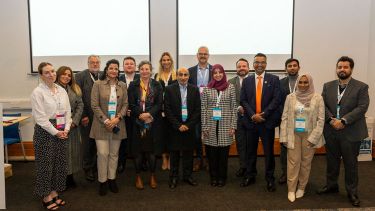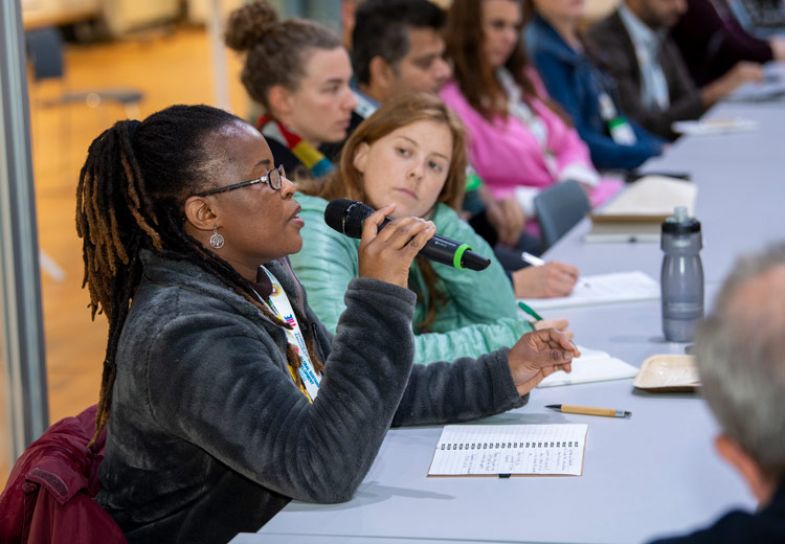
Forming equal partnerships with the communities that research impacts and thinking long-term beyond election cycles can support sustainable change
Universities can be “action leaders” and drive sustainable cities and communities by listening to local challenges and taking a collaborative and active approve to solving them.
A session at the Global Sustainable Development Congress 2022, held by Times Higher Education in partnership with the University of Glasgow, asked how universities can contribute to sustainable cities and communities.
Frank Coton, senior vice-principal and deputy vice-chancellor (academic) at the University of Glasgow, said two of the keywords throughout the congress were “partnership” and “collaboration”. He asked the audience: “What is the right thing for higher education to be doing in terms of contributing to the development of sustainable cities and communities?”
Prudence Mhlophe, a PhD research student at the University of Glasgow, said a theme that had been constant across discussions at the congress was that everyone has a role to play.
“This is not a single entity’s responsibility. It can’t just be higher education; it can’t just be the public sector or private sector. Everybody has to be involved – communities, young people, everyone. Because it is for our future, everybody has a stake in it,” she said.
Mhlophe’s research explores the redevelopment of vacant and derelict land, looking at soil properties and climate change mitigation as part of Glasgow as a Living Lab Accelerating Novel Transformation (GALLANT). To achieve the UN Sustainable Development Goals (SDGs), she said that funding will be crucial and greater than what the public sector alone can afford.
“There will need to be partnerships between universities, between private companies. Governments will need to be involved. They will all need to chip in, everybody’s going to work together,” she said.
“There’s a lot of work to be done but there’s progress already. The GALLANT project I’m a part of is a good example of a whole-of-system approach where everybody’s involved – the community, the private sector, public sector, higher education institutions – all committed to making a difference in meeting these development goals.”
One attendee pointed out that while partnerships were key, they had to be “ethical and equal”. “We need to be partnering with the communities that our research and our teaching impact and that needs to be an equitable and ethical partnership. We’re actually really listening to the voices – it’s our communities that are telling us what their priorities are for research,” they said.
Another attendee, a teacher, stressed the importance of nurturing “sustainable development champions”. “I believe if I can actually convey this message to the students in the future, each of them, wherever they will work, will try to implement the key pillars of sustainable development. From that, we can also create sustainable communities,” they said.
The issue of funding and government buy-in was also raised. There was a need for “thought leadership and the long-term thinking that’s not related to election cycles”, said one attendee. Another went further, arguing that universities “can be action leaders, rather than thought leaders”.
“We need to think of the urgency. We need to have us role modelling, taking urgent action. The role of universities is to be conveners of difficult conversations in a way that maybe politicians are unable or unwilling. I’d love to see universities being bolder and putting themselves out there a bit,” they said.
In partnership with



